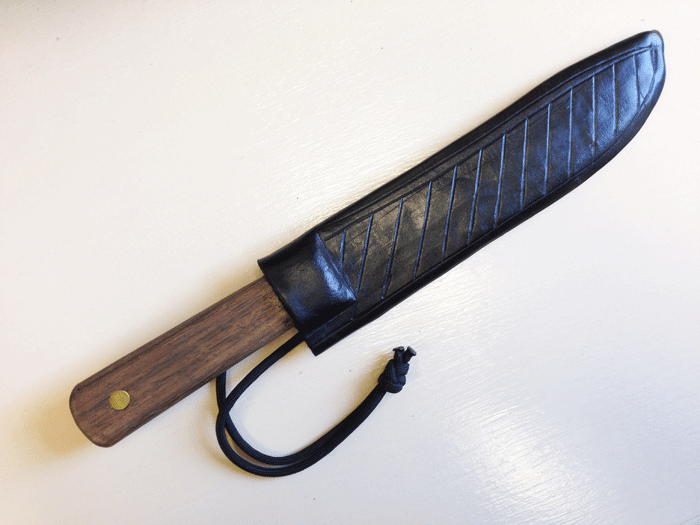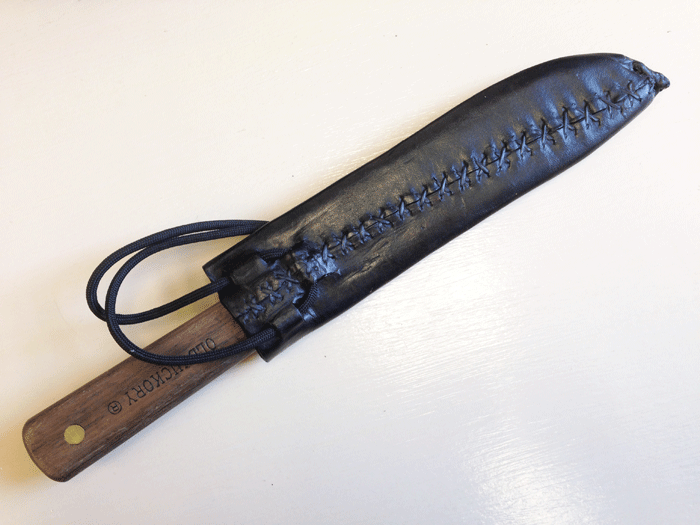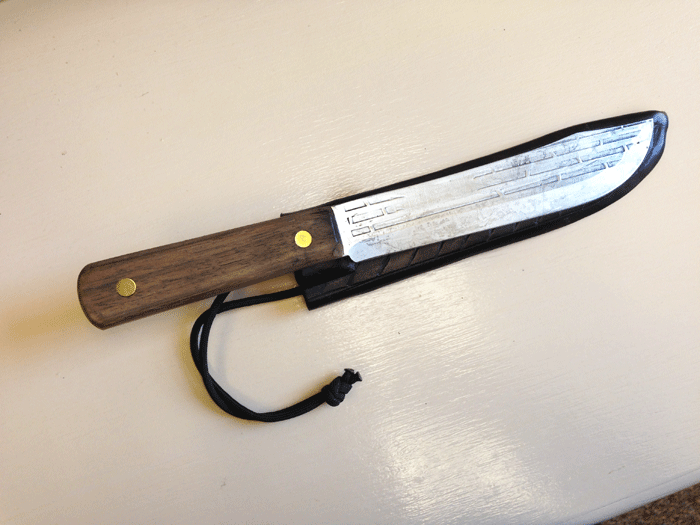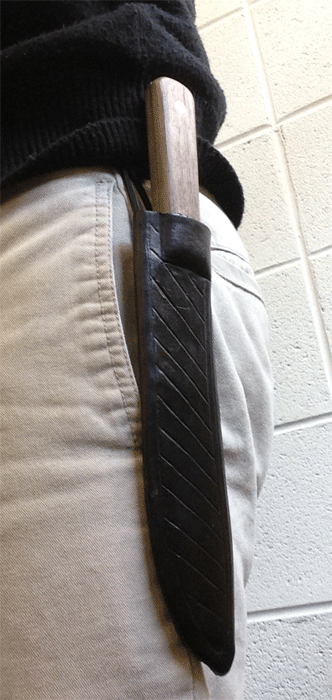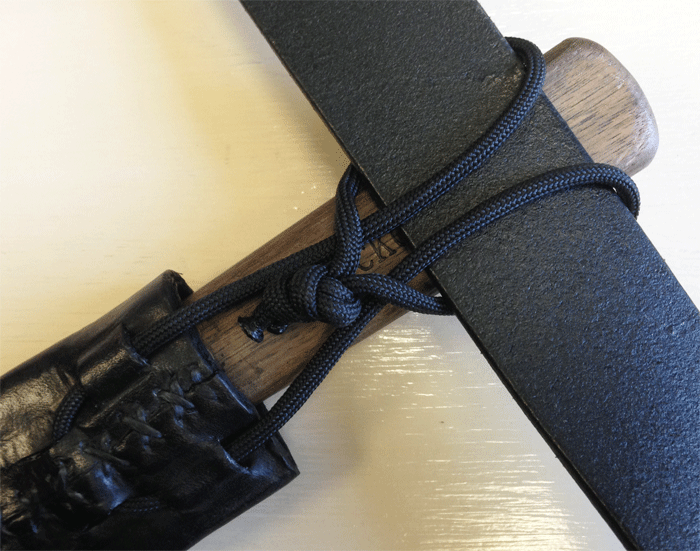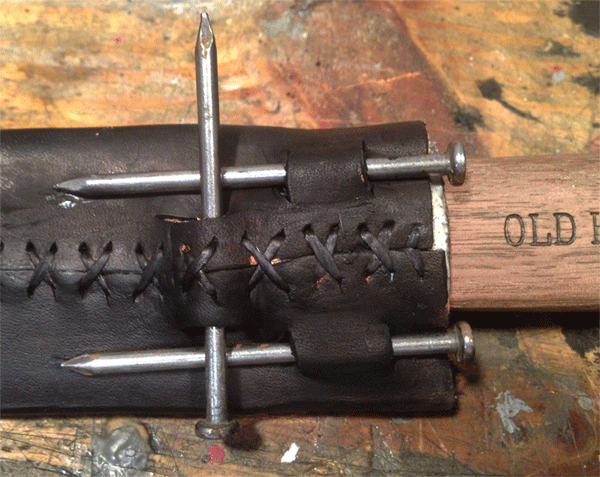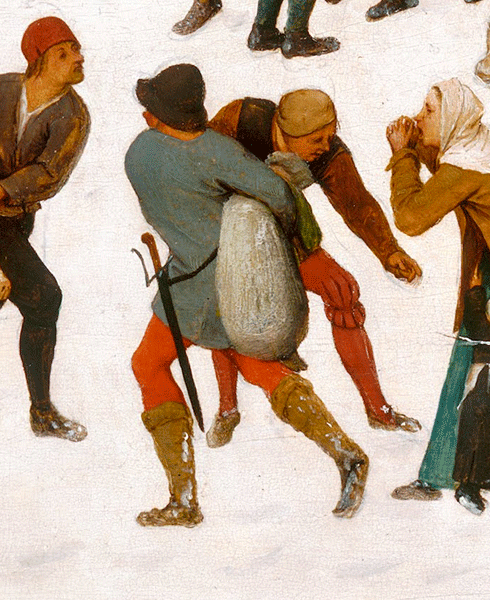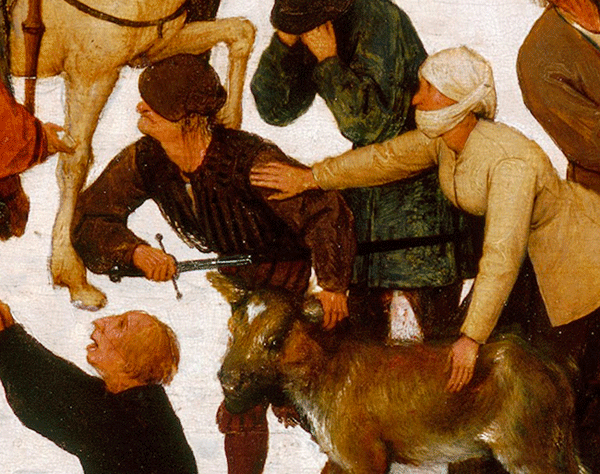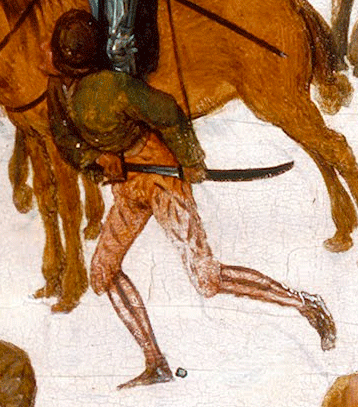The knife is one of the wonderful Old Hickory butcher knives you can get new for under $12. This is the 7" blade (high carbon steel,) which is compact and light enough for fieldcraft, but thick enough for limbing, batoning, etc. Because it's incredibly cheap and sturdy, you can push this knife a long way without worrying too much about breakage. You can see how worried I am about keeping this blade pristine. Those qualities played a part in my sheath planning.
The sheath is of the duplex style typical of what you'll find in the Museum of London publication "Knives and Scabbards." There isn't much in the way of construction or decoration to suggest a period more specific than 1300-1500. I did add a hasty design to the front of the scabbard just because that broad surface looked very dull without something. In keeping with the utilitarian work overall, I used a very coarse stitching (two-needle) of the heavy waxed cord sold as "artificial sinew." I punched the holes rather far from the seam edge because I didn't want to risk the cord pulling through.
For the suspension, I've used paracord instead of the historically appropriate thong, but I'm not necessarily convinced the paracord is superior as it might be more prone to slippage. Here's where the cost of the knife and leather influence the construction of the sheath–if this suspension fails and and I lose my knife, I'll shed a quick tear over the labor, but won't worry too much about the $15 or so I have invested in this set. Because the German Bauernwehr was sometimes suspended from a narrow belt, I've made the horizontal suspension channel large enough to accommodate that suspension if the thong annoys me. In general, I like to have field kit well-secured, but I'm willing to give this loose suspension a chance for the sake of better understanding it. One obvious advantage of this suspension is that it can move out of the way as you kneel, crouch or sit on the ground, which is often the case in fieldcraft. A large knife fixed tightly to a belt can restrict such movement and be uncomfortable.
Medieval paintings often show light knives (eating knives, etc.) suspended by a single loop. For a knife of this size, I think I'll prefer folding the single loop over to create duel side-by-loops. This should be a good compromise between stability and flexibility. We'll see.
The photo at bottom shows how I keep the suspension channels open at the various stages of construction. At the stage shown, I was gluing the duplex layers around the mouth of the sheath to stiffen the opening and help prevent separation of the layers. When that was dry I did the final trimming, dyeing and burnishing of the mouth. You could just as well finish everything and then dye. That probably makes more sense, and it would save some staining of your hands! I rubbed the dried sheath with a cloth to remove excess dye then rubbed in copious amounts of beeswax to fill the seam and stitch holes, and polished with a dry cloth.
So, there's my $15 Bama-wehr. It's a relatively simple, practical and inexpensive way to develop skills for the broader hobby of medieval arms.
